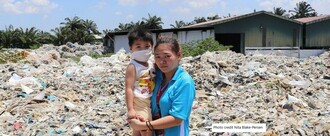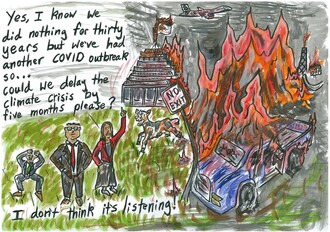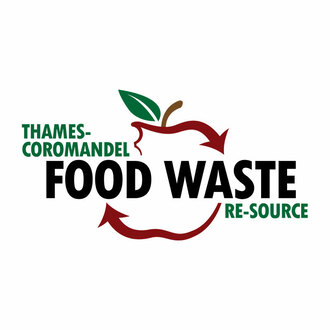-
Climate Change Chaos: Don't burn Waipā - NO TO TOXIC WASTE BURNING IN WAIPĀIncinerators Pollute Our Air, Land and Water Waste-to-energy incinerators produce outputs in the form of air emissions, ash, and liquid effluent that are all highly contaminated with toxic substances. Incinerator toxins falling back to land are regularly washed into waterways where they combine with leachate from hazardous waste landfills. These contaminants poison fish and other aquatic life as they flow through our streams and rivers into our harbours and eventually into our oceans. These toxins have the potential to enter our food chain at every stage of their journey to the sea. The burning of plastics, tyres and household rubbish is more polluting than coal as a source of electricity. This incinerator threatens Aotearoa New Zealand’s wider efforts to decarbonise the entire energy sector. Environmental impact from this waste-to-energy incinerator: - Te Awamutu would become a net waste importer. In 2020-2021, the Waipā District sent 27,000 tonnes of rubbish to landfill. This is approximately 74 tonnes/per day. This application would allow for up to 480 tonnes of waste per day to be burnt. This means, at a minimum, GCS could import up to 406 tonnes of additional waste into the community per day. Te Awamutu would be exposed to toxic emissions related to the burning of other regions’ rubbish. - Generate approximately 23 tonnes of toxic ash per day, including 2 tonnes of highly contaminated fly ash. This extremely toxic material will need to be dumped in special hazardous waste landfills. - Emit cancer-causing dioxins and furans, sulphur dioxide, nitrogen oxide, mercury and particulate matter that would impact human health as well as contaminate the surrounding land and Mangapiko stream that is immediately next to the proposed site. - Have a carbon footprint many times greater than the same amount of waste being sent to landfill - there is 150 kilo tons per year of CO equivalent (CO2e) from the combustion itself. - Incinerators release greenhouse gases - for each tonne of waste burnt, up to 1.2 tonnes of carbon dioxide is produced. This will impact on Aotearoa New Zealand’s carbon footprint and progress towards achieving the targets agreed to in the Paris Agreement. Effects on the local Te Awamutu community The waste-to-energy incinerator: - will run 24 hours a day, 7 days a week, 365 days of the year - be right next door to a residential neighbourhood and schools, and be situated almost entirely in a floodplain area - will effect the health and well-being of residents living in the vicinity of the waste-to-energy incinerator - will use Racecourse Road as the access point for all of the rubbish trucks, this road is lined with residential houses on one side of the street meaning an increase in noise and vibration from the increase in traffic and trucks delivering rubbish to the waste-to-energy incinerator - will expose residents to odour nuisance and cancer-causing dioxins released into the air - will endanger the wider community by increasing impacts of climate change and taking Aotearoa New Zealand further away from the climate change targets it needs to achieve - will source municipal solid waste from the region, this means Te Awamutu could become a dumping ground for waste from as far north as Hampton Downs and as far South as Taupo - will be burning tyres that will be sourced from all around Aotearoa New Zealand - may adversely affect land-values of neighbouring properties - be the first waste-to-energy incinerator in Aotearoa New Zealand. Incinerators are being shut down around the world - Europe closed its last mixed solid waste-fed plant in Germany (the Burgau plant) in 2015 due to climate and safety considerations. Denmark plans to cut its incinerator capacity by 30% (closing 7 incinerators) over the next decade, otherwise they can't meet their climate change targets. Other plants are failing due to technical/engineering issues. In February two further plants in the United Kingdom alone closed due to technical failure. In order to deliver an adequate return on investment for waste-to-energy incinerators, a guaranteed specific volume of continual waste is needed for efficient operation. This directly undermine local and national efforts to minimise waste by ‘locking in’ waste production. CONCLUSION It is hard to overstate what a disastrous proposal this is. Central government has not been willing to help communities to stop these dangerous polluting proposals. Collective action is our only avenue to keep incinerators out of Aotearoa New Zealand. Please take a few minutes to share this petition today - because your actions do make a difference to the decision-making process. Incinerators destroy the progress we have already made. While we accept that waste is a problem, we know that incinerators are not the answer. Regenerate not incinerate, to create jobs, and invigorate a zero waste circular economy. To help achieve this goal, we hope you will join us in opposing the waste-to-energy incinerator proposal. This is conforming to Climate Change Chaos - further supporting more Oil and Gas extraction and promoting pollution. Waipā needs less archaic colonial waste structures of incineration, but leadership and investment in Waste for a cleaner Waipā. For further information, please join our Facebook group - https://www.facebook.com/groups/1002070993783725. Ka ora te whenua, ka ora te tangata - when the land is well the people are well.2,849 of 3,000 SignaturesCreated by Dontburn Waipa
-
BUY BACK PUKETITI (Ōpua Headland)https://player.vimeo.com/video/724792566 Puketiti is historic land at the heart of the Ōpua community. This land was used as a strategic lookout by Pumuka and his people and as such, is a vital taonga to mana whenua. Imagine Pumuka scanning the Bay from the lookout. He would have extensive views up the Waikare Inlet, out towards the Black rocks and over the sea to the many visible Pa sites. He would see hundreds of waka transporting people and supplies across the water. Puketiti is a destination. A prominent destination for cyclists and walkers. A safe destination in a tsunami as evidenced in 2021. A perfect lookout to celebrate Matariki and our New Zealand history. A place for future generations to learn and be creative while surrounded by panoramic land and sea views, nature and history. If we do not act now this precious land covered in trees planted by past generations of school children, will be flattened, developed and turned into 17 premium residential sections. Puketiti and the lookout will be no more. I am in no doubt that the underhand way this land was sold was a purposeful act intending to mislead and undermine the Ōpua community and mana whenua. Secrecy appears to have been required to obtain resource consent for the building sites. Without the secrecy, I am certain that this project would have been stopped in its infancy. ‘Save Ōpua’s Soul’ (S.O.S.) is a group of concerned local residents who feel very strongly about the current loss of this land, the total lack of respect shown to mana whenua and the skulduggery surrounding the secrecy of this land sale. We ask FNHL and FNDC to listen to the people whom they represent. A mistake has been made so put it right - BUY BACK PUKETITI! This petition has been made in discussion with and full support of mana whenua who are also represented in our S.O.S membership. In our 2019 petition “Stop Puketiti Development”, we reached 1,232 online signatures! Links to further info: Newspaper Article covering land sale and occupation: https://www.stuff.co.nz/pou-tiaki/124139594/campaigners-plan-to-occupy-key-northland-land-until-its-made-into-a-reserve Newspaper Article covering land sale and protest: https://www.rnz.co.nz/news/te-manu-korihi/428730/ngapuhi-protesters-prepared-to-stand-in-front-of-bulldozers-to-stop-development-on-wahi-tapu-land Waitangi Day Protest: https://www.nzherald.co.nz/northern-advocate/news/waitangi-day-labours-maori-caucus-met-with-small-protest-over-land-sale-at-te-tii-marae/LP2Z4EHZS3GWJWHYS6ZL6ZEGOM/ Facebook Page of occupation: https://www.facebook.com/TE-ROROA-KI-OPUA-105941851046020/581 of 600 SignaturesCreated by Paula Beck
-
Have your say on the Christchurch Stadium to save the climateThe construction cost of the Christchurch Stadium is massive and there are a lot of GreenHouse Gases emitted during the manufacture and transportation of steel and concrete that is needed in large volumes for the Stadium’s proposed design. https://www.stuff.co.nz/environment/climate-news/128957620/criticism-over-enormous-carbon-footprint-of-christchurchs-planned-stadium The current stadium has small crowds and the planned stadium is likely oversized. With an expected economic benefit over 25 years of $462.2 million and an expected cost over that time of $847 million (made up of $683m project cost + $4.2m x 25 years operating cost + $59m cost of land purchase), the stadium is expected to lose $385 million with a return of $0.55 on every dollar spent. (Numbers are from the Council's consultation page, and the cost of land purchase being additional was confirmed by email correspondence.) It does not make sense to push on with the Stadium. However previous Council decisions on the Stadium have had great interest from the rugby community, and the Crusaders chief executive has submitted for this consultation that he wants the Council to invest the additional $150 million to continue as planned. Last year, a petition signed by 24,000 people led to the Council opting for the $50m more expensive 30,000 seat option. The Canterbury Rugby Football Union has emailed the 25,000 in its database asking them to express support for the 30,000 seat covered Stadium on the Council's website, and the Canterbury Employers' Chamber of Commerce has encouraged its 2700 members to call for the stadium to be built without delay. This is why the submission YOU (Christchurch or neighbouring council resident) make is so important for ensuring a sensible decision is made. Only a week since consultation started and already 18,000 submissions have been received. Aside from some personal details, the consultation only has one question. Should the Council: - Invest an additional up to $150 million to enable the project to continue as planned, - Stop the project altogether, or - Pause and re-evaluate the project. Councillors have said that people may think they pay lip service to consultations, but they would all be paying close attention to this one. They have also said that letters to the editor, posts on facebook, petitions, etc. won't make any difference unless you actually make a submission. This petition will be closed after consultation closes on the 5th of July. So please make a submission now at Te Kaha multi-use arena budget consultation https://ccc.govt.nz/the-council/haveyoursay/show/514. It takes hardly any time to tick a box. Spread the word and if anyone knows someone in School Strike 4 Climate this may be something they would be interested in.28 of 100 SignaturesCreated by Wiremu Thomson
-
Climate Accountability NowWe rarely hear of government policies on climate change, the greatest threat to the future well-being of our children and grandchildren-and indeed of the whole planet. In 2019 the Prime Minister said that the climate crisis is ‘this generation’s nuclear free moment’ and Government declared a climate emergency. Arguably, Government has failed to treat it as such. I believe it is time to take action which makes a vital and lasting difference and to hold Government to account. Regular press conferences specifically about climate change will encourage reporters with specialised knowledge to attend and will give them the opportunity to question Government closely on this crucial issue. Knowledge is power! The majority of Kiwis believe the country is doing well in its response to the climate crisis. However, the international Climate Action Tracker rates our performance as ‘highly insufficient’. Press conferences will enable the public to be realistically informed about our CO2 emissions which will pressure the government to take action. New Zealand by itself can make only a small difference but countries with small economies are numerous and together have a significant effect on CO2 emissions. NZ could be bold and lead by example. Reducing our greenhouse gas emissions will help create a future without damaging storms, droughts and floods and will reduce the dangers of sea level rise. It will create a country of communities connected by efficient public transport and green, liveable cities for future generations.1,462 of 2,000 SignaturesCreated by Bernard Schofield
-
Feilding Against Incineration - Don’t Burn Our Future!PYROLYSIS IS A FORM OF INCINERATION The EU classifies pyrolysis as a type of incineration because it involves the thermal treatment or combustion of waste, and many of the resultant pollutants and emissions are all similar across the different waste-to-energy technologies. The EU's Directive on Industrial Emissions provides the following definition (Article 3 (40)): “‘waste incineration plant’ means any stationary or mobile technical unit and equipment dedicated to the thermal treatment of waste, with or without recovery of the combustion heat generated, through the incineration by oxidation of waste as well as other thermal treatment processes, such as pyrolysis, gasification or plasma process, if the substances resulting from the treatment are subsequently incinerated.” The Feilding pyrolysis facility fits within this definition. INCINERATORS POLLUTE OUR AIR, LAND AND WATER While it is true that today’s incinerators are cleaner than older models, they’re still not perfect. Modern incinerators still release toxic chemicals that include dioxins, mercury and cadmium – substances that cause cancer, nerve damage and birth defects. Anyone living downwind from an incinerator is in danger of breathing in these dangerous chemicals and suffering the health consequences, like respiratory issues [1]. Toxins in the form of dioxins and furans and other toxic chemicals formed by the process of pyrolysis can leach into soil and groundwater and accumulate in food chains. Waste pyrolysis facilities produce outputs in the form of gas, oil, air emissions, liquid effluent and solid char that are all highly contaminated with toxic substances. All of these outputs require substantial treatment to be able to be used safely, and some components of the treatment facilities (e.g. filters, scrubbers) become extremely toxic and require disposal at special hazardous waste landfills. The oil produced from pyrolysis is particularly toxic when plastics are used as feedstocks and can contain bromine, zinc, calcium, chlorine, and sulphur making the oil produced by pyrolysis significantly more environmentally polluting than other engine fuel [2]. The Feilding pyrolysis plant will produce a by-product of 2.5 tonnes of solid ‘char’ per day. This extremely toxic material will need to be dumped in special hazardous waste landfills. It is in no way, shape or form the same as ‘bio-char’ which can be used as an agricultural soil amendment and it is highly misleading of Bio Plant to call this toxic by-product ‘bio-char’ [3]. Incinerator toxins falling back to land are regularly washed into waterways where they combine with leachate from hazardous waste landfills. These contaminants poison aquatic life as they flow through our streams and rivers into our harbours and eventually into our oceans. These toxins have the potential to enter our food chain at every stage of their journey to the sea. Environmental impact - Up to 70 tonnes of rubbish will be burnt in Feilding each day. - Incinerators release greenhouse gases - for each tonne of waste burnt, up to 1.2 tonnes of CO2 is produced. While pyrolysis does not burn waste directly, it produces gas and liquid fuels which will be subsequently burnt and will release similar levels of CO2. - It is claimed that the pyrolysis process will be ‘CO2 neutral’ and produce ‘renewable energy.’ This is completely false – the key ingredient will be plastics which are made from oil, a non-renewable resource. The synthetic gas and diesel that will be produced are also less efficient and more polluting than regular fossil fuels. Effects on the Feilding community - The health and well-being of residents - exposure to cancer-causing dioxins released into the air and potential odour nuisance. - Manawatū District Council locked into a long term and expensive contract. - Feilding is locked into producing rubbish to fulfil this contract instead of moving towards a sustainable circular economy and zero waste. - Endangering the wider community by increasing impacts of climate change and taking Aotearoa New Zealand further away from the Climate Change targets it needs to achieve. - Feilding could become a dumping ground for waste from other areas of NZ and possibly the Pacific. - May adversely affect land-values of neighbouring properties. - Employment - Bio Plant will employ very few people compared with ambitious zero waste programmes and initiatives such as reuse, repair, recycling and composting - which create as many as 200x more jobs than landfills and incinerators [4]. - Incinerators are being shut down around the world - Europe closed its last pyrolysis plant in Germany (Burgau plant) in 2015 due to climate and safety considerations [5]. Other plants are failing due to technical/engineering issues. In February two further plants in the UK alone closed due to technical failure. - There is no facility like this anywhere in NZ (and very few overseas). This is brand new technology and any consenting needs to be extremely rigorous. Feilding does not wish to be a guinea pig for this unproven technology. - We are very concerned that the proposed site for the Feilding pyrolysis facility is subject to a Treaty Claim. By failing to consult with Mana Whenua before offering this land to Bio Plant for a pyrolysis facility, Manawatū District Council are contradicting their goal of partnership with Mana Whenua. Incinerators destroy the progress we have already made. While we accept that waste is a problem, we know that incinerators are not the answer. Here in Aotearoa New Zealand, we can address our waste issues in regenerative ways that preserve rather than destroy valuable resources, prevent pollution, produce sustainable and innovative products and material systems, create jobs, and invigorate a zero waste circular economy. To help achieve this goal, we hope you will join us in opposing the Feilding pyrolysis facility proposal.730 of 800 SignaturesCreated by Feilding Against
-
Save Our National Passenger Rail NetworkTrains connect communities and are an important part of climate change action. In late 2021, KiwiRail, announced end of same-day intercity services between Auckland/Wellington and Picton/Christchurch. They were to be replaced by luxury multi-day rail cruises. In a win for this campaign, KiwiRail recently reversed that decision and reinstated the Northern Explorer and Coastal Pacific effective September 2022. While this is a win for the travelling public, it is not the end of the issue. Much of Aotearoa New Zealand remains disconnected by from the rail passenger network and other services, like the the Capital Connection between Wellington and Palmerston North, remain under threat from underinvestment. This comes at a time when the Government has said it is committed to climate action and reducing inequality. Trains have connected friends and families for graduations, weddings, holidays, and business for generations. They have connected towns with the cities, and bought our country together. But a period of privatisation and decades of underfunding has limited the development and use of our national rail network. Trains have an important place in our future but it requires investment and planning from this Government. 🛤 Rail provides a more sustainable and climate friendly method of transport across the country. 🛤 Rail can invigorate the social and economic life of small communities by making them accessible to remote workers and tourists. 🛤 Trains can bring our diverse country together by connecting them to people and landscapes across wide distances. 🛤 Trains provide an accessible method of point-to-point transport for the elderly and disabled. 🛤 Trains can help take traffic off the roads and improve road safety. Rail is an important part of our past, but it should also be part of our future. Join the campaign to support the retention of a national passenger rail network.12,483 of 15,000 SignaturesCreated by Patrick Rooney

-
Protect Hawke's Bay riversThe Awa and groundwater of Hawke’s Bay can’t give any more. Streams are already drying up completely [1]. As we pollute and take water from the awa of Hawke’s Bay, they get sicker and sicker [2]. Climate change will mean less rainfall for the region, meaning the pressure we put on our wai now will be amplified [3]. Because of this, irrigators should be returning water to the rivers. The primary sector should be developing healthy, resilient food production, which is low water use and works with the natural environment not against it. This really is possible, if regional councils and the agricultural sector directs its thinking and resources in this direction. Instead we are seeing a push from irrigators to be able to take more, including 15 million cubic meters of water in central Hawke’s Bay [4]. Hawke’s Bay Regional Council is currently considering this application. If it is approved, it would put even more pressure on rivers that are already stressed and it would contribute to locking in the disaster of high water use food production. Te Mana o te Wai is the foundational concept of our national freshwater policy. It is the principle of putting the health of the rivers first so they can support the health of people. We the health of people and the environment is provided for, then commercial, for-profit water takes can be considered. Get behind the push to make sure Hawke’s Bay Regional Council makes decisions that give effect to Te Mana o te Wai. Join our community-powered submission to call on them to decline this application. By signing this petition you are confirming your support for Choose Clean Waters full submission, which you can read here: https://docs.google.com/document/d/1HM30bHIQf4G5XA1Yoi7cUfyWZxeFxqPaCdn4ltcK3Pg/edit?usp=sharing You can read more about the applications here: https://www.hbrc.govt.nz/services/resource-consents/notified-consents/groundwater-takes-ruataniwha-basin-tranche-2/ "Just thought it would always be here" - How irrigation is hurting Hawke's Bay's rivers https://www.youtube.com/watch?v=7prqI3r68gE References [1] “Extreme drought fears in Hawke's Bay after streams dramatically dry up” - 29 Jan 2021, RNZ https://www.rnz.co.nz/news/national/435391/extreme-drought-fears-in-hawke-s-bay-after-streams-dramatically-dry-up [2] This Is How It Ends: The long fight of the river people, 30 Oct 2021, Stuff https://www.stuff.co.nz/environment/300422562/this-is-how-it-ends-the-long-fight-of-the-river-people [3] New climate change report paints worrying picture for Hawke's Bay, 5 Nov, 2020, Hawke’s Bay Today https://www.nzherald.co.nz/hawkes-bay-today/news/new-climate-change-report-paints-worrying-picture-for-hawkes-bay/LS3HP67ZS5DWUEDQM5QCNFYHUQ/ [4] Central Hawke's Bay farming companies want 15 million cubic metres of groundwater a year, but can they convince the public?, 30 Nov 2021, NZ Herald https://www.nzherald.co.nz/nz/central-hawkes-bay-farming-companies-want-15-million-cubic-metres-of-groundwater-a-year-but-can-they-convince-the-public/ZHLZ3FXP3QD626LBSSGZAF5JKE/966 of 1,000 SignaturesCreated by Marnie Prickett

-
OPEN LETTER: Stop sending our plastic waste to developing countriesNew Zealand has exported over 98,000 tonnes (and counting) of plastic waste offshore since the beginning of 2018. More than 46,000 tonnes of this has been shipped to Malaysia and Thailand. In the case of Malaysia, the plastics are imported from New Zealand and illegally burned next to schools and homes, causing a health and environmental epidemic. Cancer and asthma cases have increased. Microplastics leach into the waterways. The air is polluted with burnt plastic and ecosystems have been destroyed. The Ministry for the Environment has just published a consultation document on New Zealand's waste management strategy, "Te kawe i te haepapa para - Taking responsibility for our waste". Disappointingly, the consultation document does not “take responsibility” because it completely ignores the fact that our plastic waste exports are not being recycled by the receiving countries and the repercussions of this. The plastic waste is able to be exported because of a major loophole in the law: our kerbside recyclables and industrial plastics are not sufficiently regulated under the Imports and Exports (Restrictions) Prohibition Order (No 2) 2004 because they are considered “easily recyclable”. Section 11 of the Order requires a permit to be issued by the Environmental Protection Authority for hazardous plastics. Polyethylene (PE), polypropylene (PP), and polyethylene terephthalate (PET) recyclables are exempt from this law (under Part 2A of Schedule 3) and therefore are assumed to be “disposed of or managed in an environmentally sound and efficient manner in the importing State." Just because something is deemed to be “easily recyclable” does not mean that it is guaranteed to be recycled at the receiving country. We therefore call on the New Zealand government to immediately ban all plastic waste exports by December 2022 which is the last month that Parliament will sit in that year. New Zealand authorities still operate under the assumption that, as long as our plastic exports are easily recyclable, shipping them overseas is a satisfactory solution to our waste problem. In reality, New Zealand is shipping its emissions to developing countries. Some may say that the issue lies with Malaysian authorities not enforcing its own laws to stop the open burning of plastic waste. We reject this argument. The issue lies with New Zealand turning a blind eye to the reality on the ground. We are just as culpable when we knowingly export our waste to countries with poor resources, capacity and capability for effective monitoring, reporting, compliance, and enforcement and weak environmental and human rights protections. This is also a human rights issue and our moral obligation to Malaysia (and other developing countries) and its people should be paramount. We want the New Zealand government to invest urgently in systems and infrastructure that will reduce our reliance on plastic. It is not enough to tweak our regulations on the way our waste is exported, as the bigger problem lies with our overconsumption, poor import restrictions on toxic and single use plastics, and resins that cannot be recycled domestically. New Zealand is drowning in plastic and we cannot manage that amount responsibly, here or offshore. We need to turn off the tap and the government must establish policies and invest in systems and infrastructure that empower people to dramatically reduce their plastics consumption . We must reduce the range of plastics we import into New Zealand to those deemed non-hazardous by the Basel Convention: PE, PP and PET type plastics. We want the government to invest in companies that enable consumers to refill and reuse, rather than investing in a plastic innovation fund that will only preserve our plastic addiction (bioplastics, for example, are not necessarily good for the environment). We need the government to make plastic-producing companies responsible for their product’s lifecycle. New Zealand is embarrassingly behind other OECD countries in requiring companies to implement product stewardship schemes to address the problem at the source. We strongly urge the government to establish import controls and product stewardship laws. Use the regulatory tools we already have to streamline the type and amount of plastics that we do use to fit with our onshore recycling capacity. We also demand greater transparency and accountability from recycling and waste management companies to ensure that all post-consumer plastics are safely and domestically managed without any leakage to the environment. Even so, none of these measures will amount to much if we continue to send our waste overseas to vulnerable countries. We call on the Prime Minister to ensure that the waste management strategy is as transformative as its title suggests - that we are "taking responsibility for our waste" and not polluting other countries. To do this, we must immediately ban the export of plastic waste while transitioning to a safer circular economy in which plastics are minimalised. The government has boldly banned single-use plastic bags and microbeads, so it is no stranger to making bold decisions for the greater environmental and social good. Signed, Lydia Chai Pua Lay Peng Niamh Peren (Founder of Tino Pai Aotearoa / Thumbs Up New Zealand) Dr Trisia Farrelly (Political Ecology Research Centre, Massey University) Liam Prince (Aotearoa Plastic Pollution Alliance) Manawatū Food Action Network The ReCreators Sustainable Strategy Ltd Resilient Russell Charitable Trust Nonstop Solutions Carbon Neutral Waiheke Vision Kerikeri Federation of Women's Health Councils Aotearoa NZ Nuclear Free Peacemakers Network Waitangi Otautahi Inc 350 Otautahi Christchurch [Full list of organisations here: https://docs.google.com/document/d/18CppQ1cB2f3bV63xQxj6TWMK9bcLDq7Triwgb-EVpaw/edit?usp=drivesdk]11,824 of 15,000 SignaturesCreated by Lydia Chai

-
Tax the use of virgin plastics in manufacturing and importsPlastic is a highly recyclable material. However, the vast majority (around 90%) ends up in landfills. And that's because recycling costs money, and in the end, virgin plastics end up being cheaper. If we want to make a difference in this pollution epidemic, we need to work it at the source... Money. Plastic pollution has become a massive issue for New Zealand and the planet. But the issue lies in the economics of recycling it: it's simply not profitable. By shifting the tides, even just a little bit, towards the use of recycled plastics, we can drive local entities towards making greater efforts to fight this war on pollution. We can also ensure that there is large, bold labelling of plastic types so consumers are able to sort their recyclables with greater ease and accuracy. It's important because we're currently using little plastic bags that last for 200 years as single use packagings for things like instant rice. The problem of plastic recycling and its longevity have been on peoples minds since around the 50s until the oil industry convinced the general public that it'd all be recycled. In 2016, next to all of the plastic recycling stopped because China stopped taking it, so now we've got to come up with long-term strategies to avoid massive plastic pollution, and all the health and ecological repercussions that come with that. Not only would taxing virgin plastic imports and production change the economics of recycling, it also addresses a party that has been getting away with poisoning New Zealand's land, waters, and people for over 50 years. Perhaps they deserve a very high tax, but that's up to the policymakers. For more information visit: https://sciencenorway.no/.../why-is-so-little.../1457439 https://www.npr.org/.../how-big-oil-misled-the-public... https://www.ft.com/.../360e2524-d71a-11e8-a854-33d6f82e62f8 YouTube.com/watch?v=KXRtNwUju5g78 of 100 SignaturesCreated by Gordon Miles
-
Let’s spend the $1 billion a year on actually reducing emissions pleaseOverseas carbon credits have proven to be a dodgy and unreliable way to reduce emissions (at its simplest, if we all paid another country to reduce emissions for us then no one would reduce emissions). Most developed countries and businesses have chosen to buy carbon credits rather than actually reduce their emissions. Even carbon credit schemes run by the UN have had problems [2]. In 2030 we will be paying $1 billion a year for carbon credits. Most likely this would be through tree planting in the Pacific. While trees are great, there are so many much cooler things we could do with $1 billion a year focused on climate action. --We could buy over a hundred thousand E bikes, or hundreds of thousands of regular bikes, so that every household has access to the option of cycling. --Or we could purchase 60,000 Nissan Leaf EVs for use in the public sector, or a smaller number of slightly more expensive EVs, to help the government actually meet its target for EVs in the public sector. --Or we could subsidize regenerative farming in Aotearoa so farmers are paid to make the transition which is needed (seeing as we’re signing an international agreement to cut methane emissions by 30% by 2030 this would seem an obvious move). --Or we could use a tiny fraction of this $1 billion per year to help transition schools and the public service away from burning coal for heating. (The Government recently invested $55 million to fund 90 schools to switch to clean heating. So, part of the $1 billion would easily help the other hundreds of schools still burning fossil fuels for heating and probably the rest of the public sector [3]). --Or we could use that $1 billion a year for free public transport. (The free public transport during the first lockdown in 2020 cost $110 million. $1 billion a year would actually be quite close to covering the costs [4]). --Or, we could do a whole combination of these things every year with the billions and billions we wouldn’t be spending on carbon credits every year. These things are way more useful than paying an international company to "plant trees" for us! This is because they would actually lead to a reduction in emissions. I love trees. They’re great. But let’s spend this money on reducing emissions here, please, rather than planting trees in someone else’s country. To learn more about the complex and confusing double-think behind carbon trading you can read these articles: [1] https://www.stuff.co.nz/environment/climate-news/300442463/climate-change-target-nowhere-near-as-ambitious-as-it-sounds [2] https://www.vox.com/2020/2/27/20994118/carbon-offset-climate-change-net-zero-neutral-emissions [3] https://www.stuff.co.nz/environment/climate-news/125082069/is-your-school-burning-fossil-fuels-even-the-government-may-not-know [4] https://www.nzherald.co.nz/nz/no-such-thing-as-a-free-lunch-free-public-transport-cost-110m-during-covid-19/ZU524M4TRES7YKCXZQ3MLU4XW4/ Henry Cooke from Stuff gives a basic explanation about the recent climate commitment and the complicated accounting of carbon credits https://www.stuff.co.nz/environment/climate-news/300442463/climate-change-target-nowhere-near-as-ambitious-as-it-sounds Or, for a longer and more detailed description, you can read this piece by Umair Irfan at Vox https://www.vox.com/2020/2/27/20994118/carbon-offset-climate-change-net-zero-neutral-emissions329 of 400 SignaturesCreated by Jacques Barber
-
Call for safe and healthy journeys to schools🤸🏽♂️ Walking, biking and scooting are fun! 🌱 Being active helps to improve the retention of learning and our physical and mental well being. 🏃🏽♂️Our tamariki enjoy being able to get to and from school independently, while also reducing the workload for carers. 🌎 Active transport provides an incredible opportunity to tackle climate change. However, for many whānau, safety is a big barrier to walking, biking and scooting to and from school and access is a barrier to taking buses. When students in Waipa were surveyed, 87 percent said that they would like to walk or bike to school if their parents would let them. That’s why we’re asking the Government to commit to investing in safe infrastructure to school for all students by 2025. This includes installations like pedestrian crossings and protected bike and scooter lanes. We’re also asking the government to make public transport free for all school-aged children. Not only would this encourage more students to travel by bus, but it would reduce financial stress and barriers to education for many of our whānau. Funding dedicated school buses would provide better options for students where public transport routes don’t suit. When the Bay of Plenty Regional Council made bus travel free for all students travelling to and from school, 30 percent more students started taking the bus over just one year. That’s an awesome result! This is our chance to build a school transport system that works. That’s why we’re asking the government to prioritise school travel in its emissions reduction plan. Add your name to urge the Government to take urgent action for the climate, people and a better transport future! Please leave a personal comment to share why free fares and safe routes to school are important for you, your friends and whānau. Photo credit: @Bicycling. https://www.bicycling.com/news/a20046469/-49/53 of 100 SignaturesCreated by Go Eco

-
No more food waste to landfill Thames-CoromandelFood wastage is a global problem that has lasting effects on the surrounding physical and cultural environment. In Aotearoa-New Zealand, it is estimated that approximately 571,000 tonnes of food waste are dumped in landfills every year. The flow-on effects are seen in soil and water contamination, and the release of greenhouse gases from landfills, which contributes to climate change. In the Thames-Coromandel district, 60.9% of kerbside rubbish bags are food and organic waste (food/kitchen waste makes up 52.4%, garden and other organic waste is 8.5%). Thames Coromandel District Council’s (TCDC) solid waste contract is up for renewal shortly. The current contract with Smart Environmental finishes in October 2023, and a new contract needs to be available for tender no later than October 2022. The new contract is likely to run for the next 10 years, until 2033. This is a window of opportunity within the Council’s waste management planning, to prevent further food waste from going to landfill, and implement other measures that transform waste into resources. We need to make sure that this contract is part of the solution, and does not continue to send food and organic waste to landfill, when it can otherwise be transformed into resources. The Council is required to consult with the community on this contract. To avoid filling up our landfills unnecessarily with food waste, the Thames Food Waste Minimisation Group (TFWG), together with the Seagull Centre Trust and Whangamatā Resource Recovery Trust, are calling on TCDC to: 1. Subsidise home-scale food waste solutions such as worm farms or compost bins, as has been done in Taupō. 2. Implement a kerbside food waste collection and composting scheme, alongside existing rubbish and recycling schemes. This is already taking place in Ruapehu, Hamilton, Tauranga, Christchurch, Auckland, Timaru. 3. Provide free support (e.g. waste audit and a professional advisor ) to businesses that commit to reducing their food waste, as has been done in Taupō. 4. Develop and deliver an education campaign for households and businesses to maximise the use of the previous initiatives, and promote ideas for food waste minimisation (eg. better planning, use of leftovers, sharing excess, composting). 5. Adopt more ambitious waste minimisation goals in the next Long Term Plan (LTP), ensuring sufficient funding is allocated to attain the above initiatives. TFWG is made of Thames residents that came together a couple of years ago. Our group is made of representatives from the Seagull Centre Trust, Transition Town Thames, and passionate residents. Our vision is that Thames is taking innovative action in whole community food waste reduction, which will help to reduce emissions, conserve resources and increase food security. To further support this campaign, please answer our 5 min survey here - https://docs.google.com/forms/d/e/1FAIpQLSfDst-0bRmUiI1guyj3tmbQlKX8P7czhiJPktQXKcWAj6Lvww/viewform?usp=sf_link THIS SURVEY IS NOW COMPLETED AND HAS BEEN DELIVERED TO COUNCIL.1,154 of 2,000 SignaturesCreated by Thames Food Waste Group


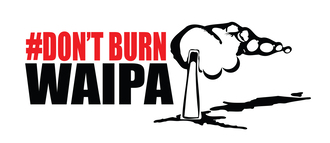
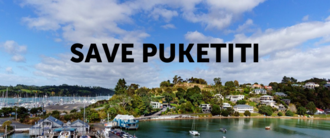

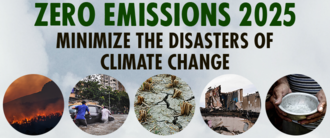
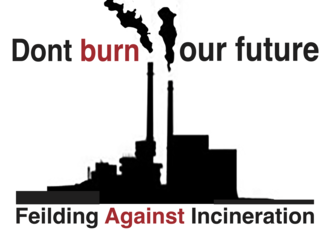
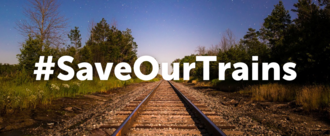.png)

